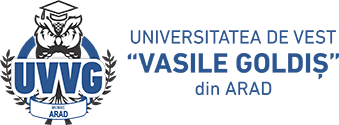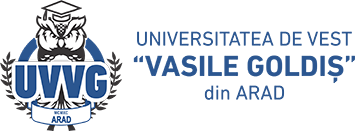STUDIES DEGREE:
MASTER
AUDIT AND ACCOUNTING EXPERTISE– IF
DURATION
2 YEARS
ECTS
120
LOCATION
Arad
TEACHING LANGUAGE
ROMANIAN
FIELD OF STUDIES
ACCOUNTING
AUDIT AND ACCOUNTING EXPERTISE
The Master’s degree programme Audit and Accounting Expertise aims to provide students with a continuation and deepening of their specialist knowledge in the field of accounting for companies and groups of companies. At the same time, the programme also provides the necessary openings to other disciplines relating to business management, the study of which ensures a better understanding of issues relating to accounting principles, accounting techniques, the verification and certification of financial statements and the use of accounting information.
OBJECTIVES
OBJECTIVES
The general objective of the programme is to train cognitive competences and skills in the field of accounting, which will provide the students with the possibility of professional involvement in the analysis of situations and decision-making, both for the efficient development of economic activities and for the development of new businesses and poles of technological and economic development.
Completion of this master’s programme offers graduates recognition, by equivalence, of the examination for access to the profession of financial auditor and chartered accountant respectively, on the basis of agreements concluded with CAFR and CECCAR.
Specific objectives. The AEC Master’s programme aims to:
- to adapt the educational offer to meet the need for specialists in the field of accounting, auditing, accounting expertise, financial analysis;
- to offer students, in addition to a theoretical training, a practical foundation in accounting, auditing and accounting expertise. This includes both a national approach and an international perspective on accounting and auditing rules and standards;
- creating opportunities for students to develop their ability to analyse various business phenomena and topics through the lens of pragmatic knowledge of audit and accounting;
- strengthening the link with the firms, institutions and communities benefiting from the Master’s graduates in order to obtain information on their level of training and opinions on the structure and content of the teaching process;
- preparing students for advanced research and specific work in national and multinational companies, consultancy and audit firms.
SKILLS
General skills:
- understanding aspects of the economic, financial and legal environment at EU level;
- development of the ability to use methods and techniques specific to financial reporting and other services in the accounting profession;
- improving economic and financial language skills to enable communication in writing, orally, via the Internet, etc;
- participating in the design of programmes specific to current financial activities;
- the possibility of accessing a diversified range of new jobs which have recently appeared and are now continuing to appear in the Romanian economy;
- the coverage of specialists in financial audit, financial techniques and strategies, internal control, financial analysis, management of portfolios of financial instruments;
- participation in the development and coordination of projects in the field;
- providing long-term skills, practical knowledge in the preparation and control of financial information, in the preparation of financial decisions.
Specific competences and skills:
- developing the ability to understand and manage financial and information risks;
- the use of economic software;
- ability to investigate and analyse using specific methods for researching financial processes and phenomena in organisations;
- ability to conduct and execute interdisciplinary research activities;
- the use of modern models of valuation and selection of financial assets in order to optimise portfolio structure;
- ability to develop strategies for accounting and tax policy of economic entities;
- carrying out market analyses, analyses of the development of financial assets, the use of new financial instruments in risk management activities and the enhancement of the performance of individual and institutional portfolios.



